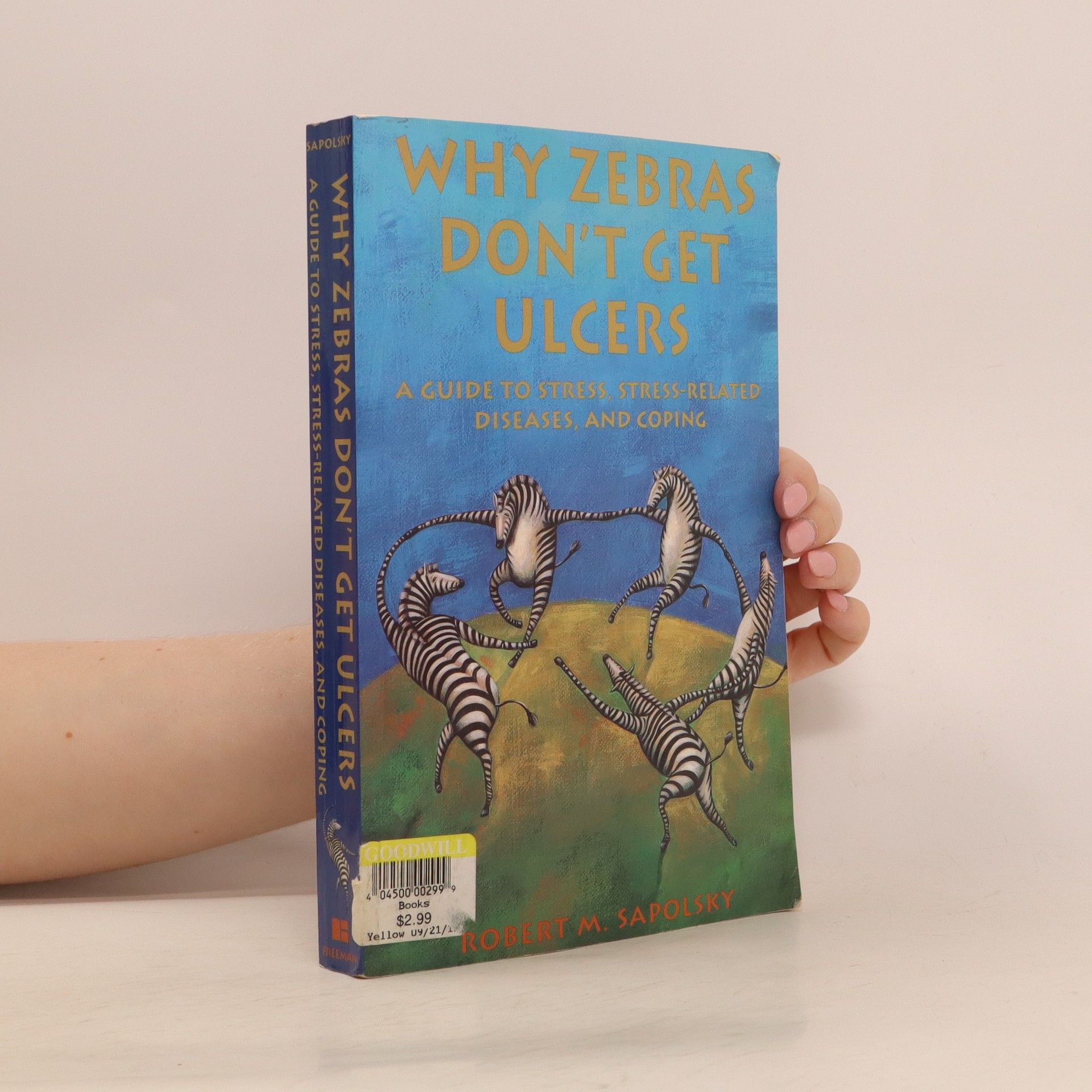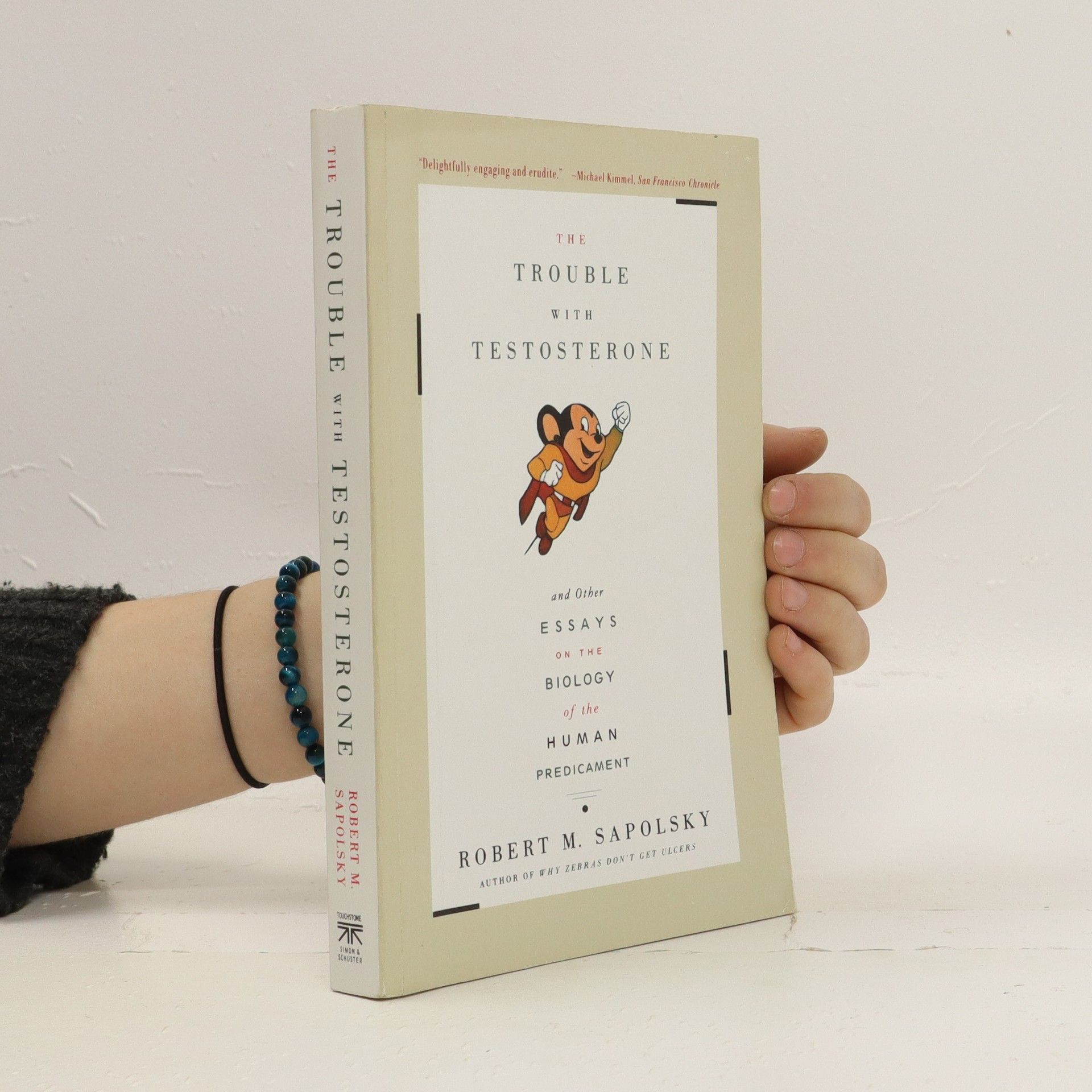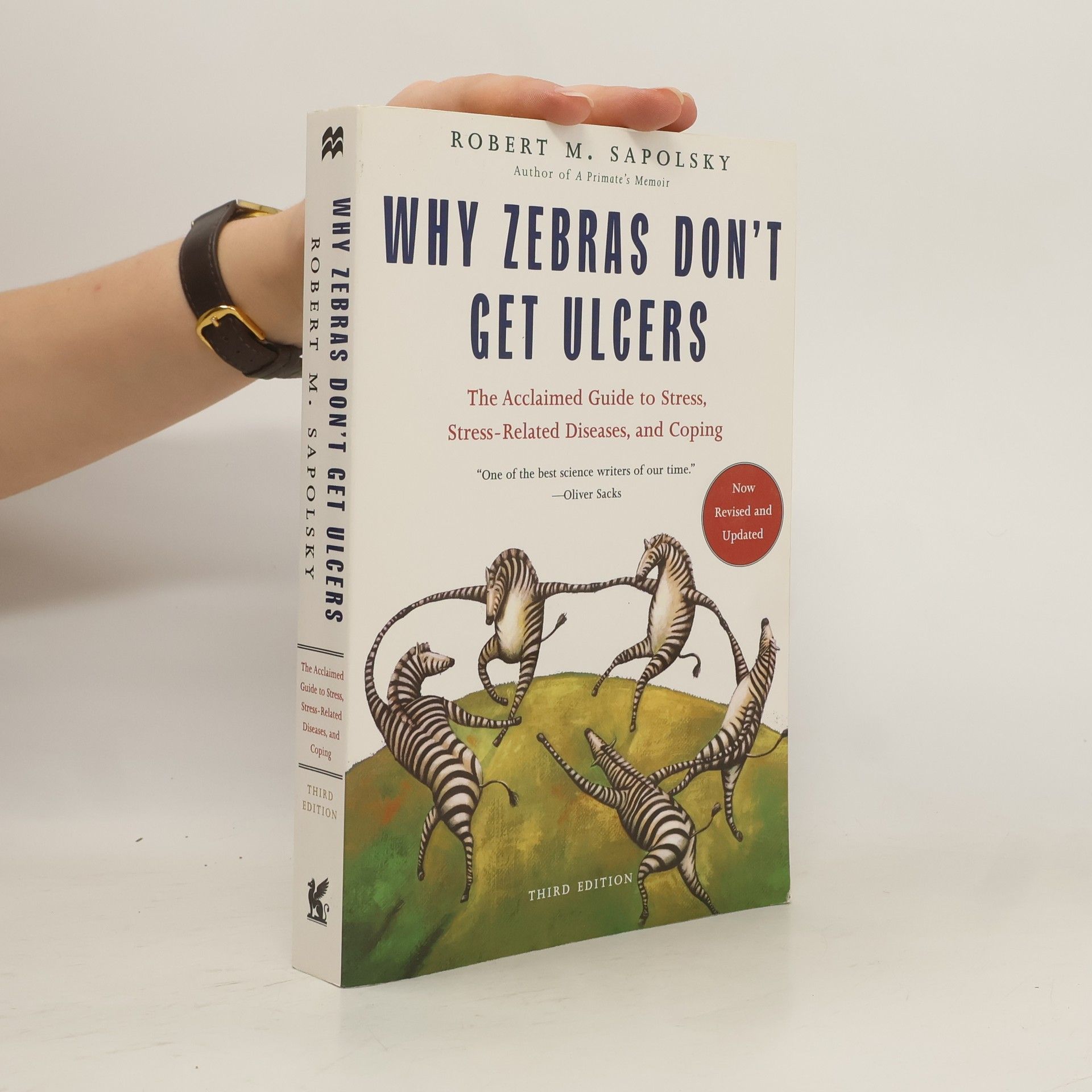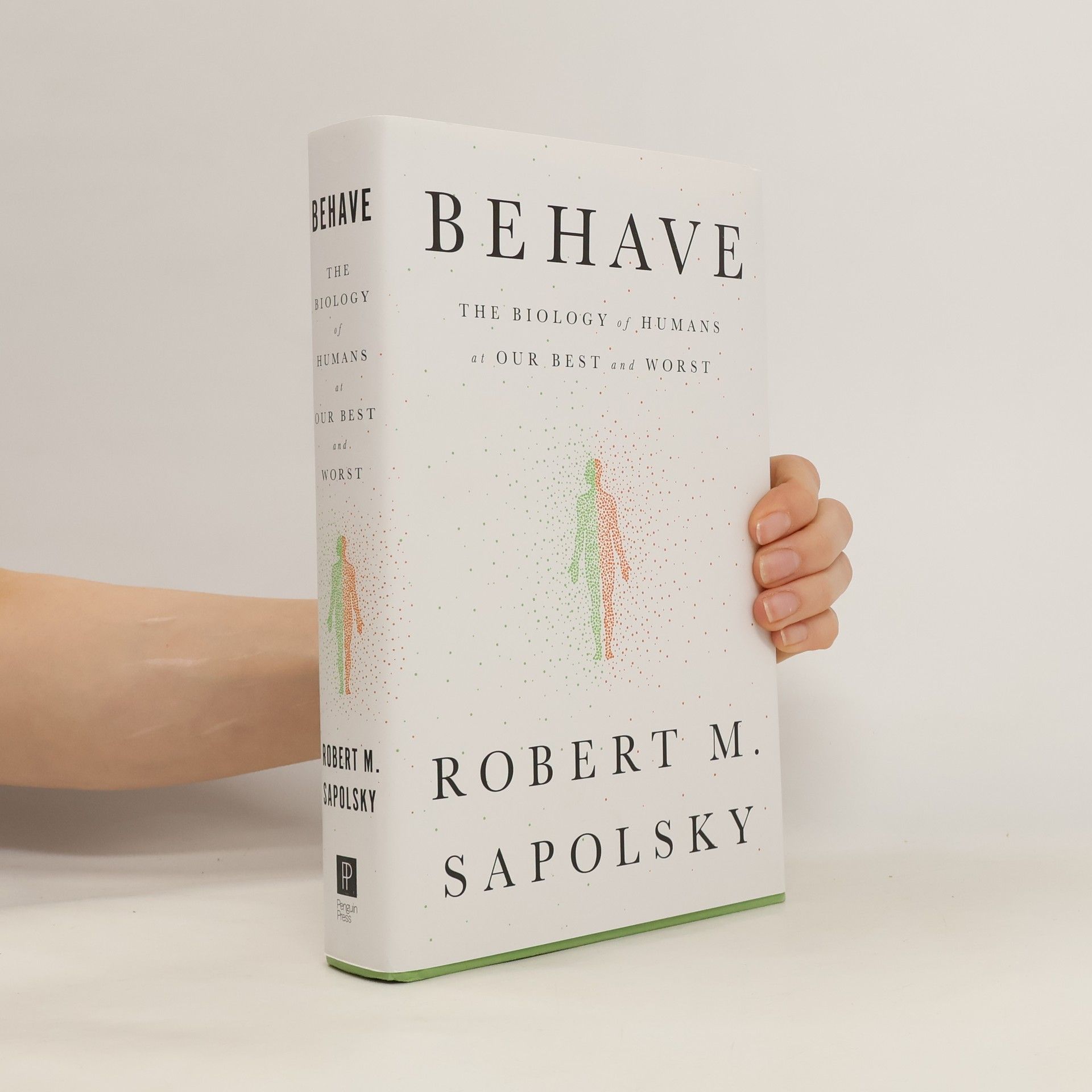Máme na vybranou?
Otázka svobodné vůle z pohledu moderní vědy







Otázka svobodné vůle z pohledu moderní vědy
One of the world's greatest scientists of human behaviour, the bestselling author of Behave, shows that free will does not exist - and sets out the disturbing yet liberating implications of accepting this fact. 'One of the best scientist-writers of our time' OLIVER SACKS What if free will is an illusion? As Robert Sapolsky shows in this masterful account of the science of human behaviour, everything we think and do is caused by the luck of our biology and the influence of our environment, and ultimately both are beyond our control. In a world without free will, we must completely rethink what we mean by choice, responsibility, morality and justice. Sapolsky's extraordinary book does exactly this, guiding us toward a profoundly fairer, more humane way of living together. 'A joy to read. It's impossible to recommend this book too highly. Reading it could change your life' LAURENCE REES 'Outstanding for its breadth of research, the liveliness of the writing and the depth of humanity it conveys' Wall Street Journal 'Moving, absorbing, compassionate' OLIVER BURKEMAN, Observer
Zachowuj się to znakomita publikacja amerykańskiego biologa i neurologa, Roberta Sapolsky’ego, poświęcona motywom ludzkiego zachowania. Autor prowadzi czytelnika w fascynującą podróż, oferując interdyscyplinarne spojrzenie na ludzkie postępowanie z perspektywy naukowej. Książka wyjaśnia nasze codzienne doświadczenia oraz przedstawia złożony obraz przyczyn plemiennych waśni, ksenofobii, wojny i pokoju. Pomysłowy układ tekstu prowadzi od momentów działania do głębszych przyczyn, takich jak reakcje w mózgu, interakcje hormonalne, doświadczenia dorastania i wpływ genetyki oraz kultury. Autor stawia kluczowe pytania dotyczące najgorszych i najlepszych ludzkich zachowań, uwzględniając ewolucyjne początki naszego gatunku. Książka rzuca nowe światło na zjawiska takie jak rasizm, traumatyczne dzieciństwo, moralność i wolna wola, a także wskazuje, jak dążyć do pojednania i trwałego pokoju. To mądra, głęboko ludzka i często zabawna lektura, która uczy nas człowieczeństwa. Wspaniała narracja, zabarwiona humorem, oraz znakomity przekład Piotra Szymczaka sprawiają, że treść jest przystępna i pełna erudycji.
Proč se chováme tak, jak se chováme? Takovou otázku se pokoušeli zodpovědět mnozí a už rozmanitost přístupů, jak ji lze uchopit, naznačuje, že se jedná o úlohu navýsost zapeklitou. Jedni se zaměřují na neurobiologii, jiní si vzali na paškál hormony, další preferují geny, někteří zase kladou na první místo výchovu či další vlivy prostředí, které na nás zprostředkovaně působí od momentu našeho početí, tedy již v matčině lůně. Nesmíme ovšem zapomínat ani na evoluci, která naše chování utvářela po dlouhé věky. Všechno jsou to však jen škatulky, které jsou součástí jednoho celku, jenž ve své monumentální knize rozplétá americký biolog Robert Sapolsky. Ten čtenáři představuje původ našeho chování od prvních sekund, během kterých byla stěžejní aktivita různých oblastí mozku, přes hodiny až dny, kdy hrály prim hormony, až k milionům let, během nichž naše chování formovala evoluce. Sapolského kniha se tak vymaňuje z pout, kterými snahy o vysvětlení chování svazují jednotlivé obory, a snaží se o přístup holističtejší, který čerpá z nejrůznějších oborů biologie od neurologie a endokrinologie přes genetiku po evoluční biologii.
»Das wohl umfassendste Werk, das sich je dem Zusammenleben der Menschen gewidmet hat.« Die ZeitDer New-York-Times-Bestseller erstmalig im Taschenbuch Robert Sapolsky legt Schicht für Schicht die Ursachen und Biologie des menschlichen Verhaltens frei. Warum sind Menschen mal aggressiv, mal einfühlsam? Der Neurobiologe schlüsselt in seinem Standardwerk Schritt für Schritt sämtliche Faktoren auf, die zu Gewalt oder Mitgefühl führen: - Was passiert Sekundenbruchteile vor einer Gräueltat im Gehirn? - Welche Sinnesreize wirken Sekunden oder Minuten vor einem Akt des Mitgefühls auf uns ein?- Wie stimulieren Hormone Stunden oder Tage vorher das Nervensystem? - Welche Rolle spielen Umwelt, Erziehung und Kultur, und welche die Gene? - Und was hat die Evolution damit zu tun, dass wir morden oder unseren Nächsten lieben? Sapolskys faszinierende Analyse lässt uns jede Tat als komplexes Zusammenspiel biologischer und psychologischer Einflüsse begreifen. „Gewalt und Mitgefühl“ ist eine grandiose Synthese der Wissenschaft vom menschlichen Verhalten. Und ein Buch, das vollkommen neue Wege aufzeigt, die Kontrolle über unser Handeln zurückzugewinnen – und damit die Gewalt einzudämmen. »Eine eigensinnige und bahnbrechende Synthese von Neurobiologie und Psychologie. Darwin wäre begeistert gewesen.« THE NEW YORK TIMES
New York Times bestseller • Winner of the Los Angeles Times Book Prize • One of the Washington Post's 10 Best Books of the Year “It’s no exaggeration to say that Behave is one of the best nonfiction books I’ve ever read.” —David P. Barash, The Wall Street Journal "It has my vote for science book of the year.” —Parul Sehgal, The New York Times "Immensely readable, often hilarious...Hands-down one of the best books I’ve read in years. I loved it." —Dina Temple-Raston, The Washington Post From the bestselling author of A Primate's Memoir and the forthcoming Determined: A Science of Life Without Free Will comes a landmark, genre-defining examination of human behavior and an answer to the question: Why do we do the things we do? Behave is one of the most dazzling tours d’horizon of the science of human behavior ever attempted. Moving across a range of disciplines, Sapolsky—a neuroscientist and primatologist—uncovers the hidden story of our actions. Undertaking some of our thorniest questions relating to tribalism and xenophobia, hierarchy and competition, and war and peace, Behave is a towering achievement—a majestic synthesis of cutting-edge research and a heroic exploration of why we ultimately do the things we do . . . for good and for ill.
'The making of a lifelike picture was something to be wondered at. It was an adventure, it was an expense, and it was often something of an ordeal...' Victorians in Camera explores the world of nineteenth century photography from the subjects' point of view. What did people want from their portraits? Where did they go to have them made and did the Victorians really never smile? What did they do with the finished product, whether a formal daguerreotype or cheery snapshot? From a wealth of contemporary evidence - in both words and pictures - Robert Pols reveals the story behind Victorian photography - from trickery to photographic fashions. Discover the social history behind nineteenth century photographs and how to trace hidden stories within your own family album.
Fascynujące kompendium współczesnej wiedzy na temat psychofizjologii stresu łączące perspektywy 4 dyscyplin: psychologii, neurologii, immunologii i endokrynologii. Autor wnikliwie opisał, co dzieje się z człowiekiem, gdy doświadcza stresu. Dzięki lekturze zrozumiemy, w jaki sposób oddziaływanie stresu na organizm ludzki wpływa na całe nasze życie, czyniąc nas podatnymi na choroby cywilizacyjne, wywołując m.in. zaburzenia pamięci i funkcjonowania mózgu, otyłość czy cukrzycę. Stresu nie można wyeliminować, ale zrozumienie mechanizmów tej reakcji, jej przyczyn i efektów, pomoże nam radzić sobie z otaczającym światem.
Gracias a los avances en la medicina y en la sanidad pública, nuestros patrones de enfermedad han cambiado. Actualmente padecemos enfermedades distintas y tenemos más probabilidades de morir de forma diferente que la mayor parte de nuestros antepasados. Lo que nos preocupa y nos quita el sueño es otro tipo de enfermedades. Y una de ellas es el estrés: atascos de tráfi co, problemas económicos, exceso de trabajo, relaciones sociales... Y el estrés sí puede generar enfermedades. En nuestra vida privilegiada, hemos sido los únicos (del mundo animal) con la suficiente inteligencia como para inventarnos esos agentes estresantes, y los únicos lo bastante estúpidos como para permitir que dominen nuestras vidas. Ante el gran muro de un agente estresante no hay que suponer que existe una solución especial que logrará derribar el muro, lo que hay que asumir es que a menudo, mediante el control de una serie de puntos de apoyo podemos escalarlo. Este libro es una útil guía para ello. Esta nueva edición totalmente actualizada incluye nuevos capítulos y nuevas perspectivas sobre cómo responde el sistema nervioso al estrés y cómo se pueden controlar estas respuestas.